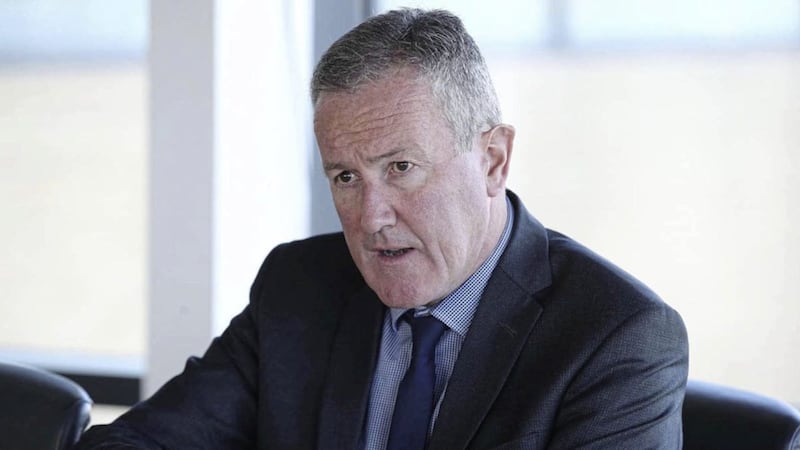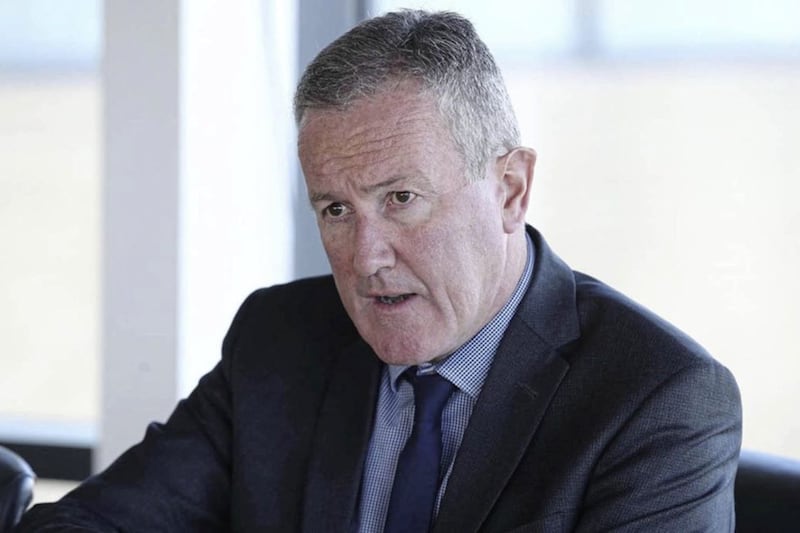FINANCE Minister Conor Murphy has announced a shake-up of the board charged with overseeing public procurement policy in the north.
The Executive spends around £3 billion a year or a quarter of its annual budget on procuring goods, services, and construction work.
But the board charged with overseeing had been viewed as too large and staffed with too many senior departmental officials.
The new Procurement Board will be slashed in half to ten members, with greater representation from the private sector.
Half the board will be made up with representatives from the construction, manufacturing, SME and social enterprise sectors.
The other half will be made up senior civil servants whose expertise is directly tied to the the design and management of procurement exercises.
“It’s important that procurement policy benefits from the expertise and insight of the sectors that tender for and deliver contracts on behalf of the public sector,” said Mr Murphy.
In a new governance shake-up, policy approved by the Procurement Board will now go to the Executive for approval.
“Procurement policy will therefore carry the authority of Government Ministers, who are accountable to the public, and their Accounting Officers, who are legally responsible for ensuring public expenditure provides value for money.”
The Finance Minister has also indicated that Stormont’s future procurement policy will now prioritise security of supply, with local suppliers set to benefit.
“The Covid pandemic triggered a global scramble for PPE and other essential supplies. We do not want to be in that position again,” said Mr Murphy.
“It would be much better if we could source vital supplies locally, rather than worrying about supply routes by air and by sea.
“The need for secure supply routes is also heightened by Brexit, which is likely to disrupt trading relationships, particularly if the British Government fails to agree a trade deal with the EU.
“A stronger focus on security of supply will of course benefit local businesses and help increase employment levels.”
The Finance Minister has also announced a new policy to make ‘social value’ a mandatory component of procurement exercises. It could see supplier required to provide low carbon or living wage guarantees.
“The new structure of the Procurement Board will allow for procurement policy to be co-designed by those that design and deliver government contracts,” added Mr Murphy.
“I look forward to chairing the first meeting on December 16 and to working with the members to enhance public procurement for the benefit of those we serve.”
The new members appointed to the Procurement Board are:
• Construction: Mark Spence, Construction Employers Federation and Denise McMahon, Construction Professionals Council
• Manufacturing: Mary Meehan, Manufacturing NI
• SMEs: Ian McClelland, SME Forum
• Social Enterprise: Colin Jess, Social Enterprise NI
• Chief Executive CPD: Des Armstrong
• Health and Social Care Sector: Peter Wilson
• Major Projects and Procurement DfI: John Irvine
• DoF Commercial Director: Sharon Smyth
• Strategic Investment Board: Brett Hannam




